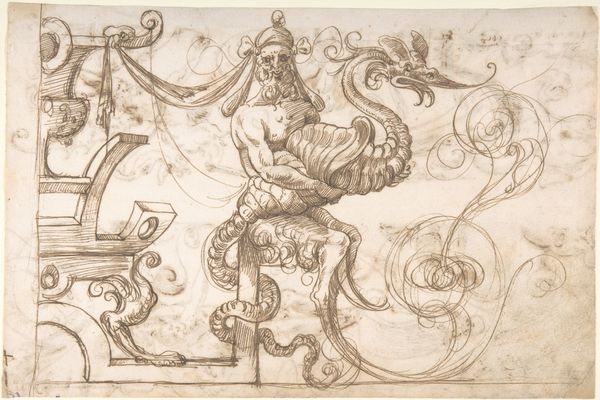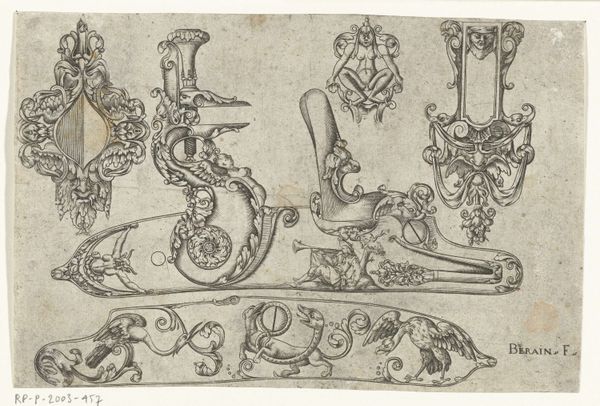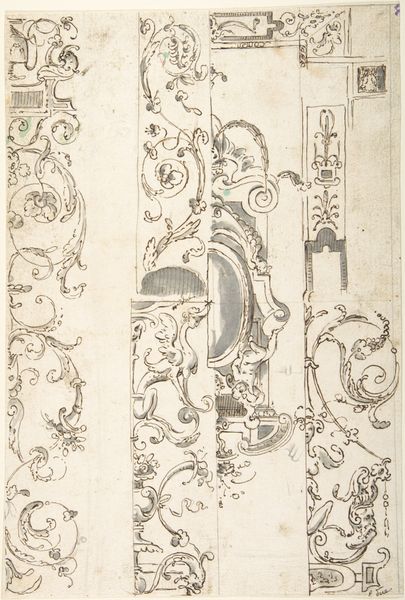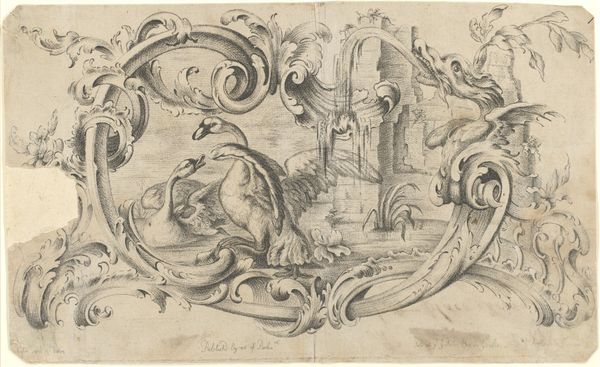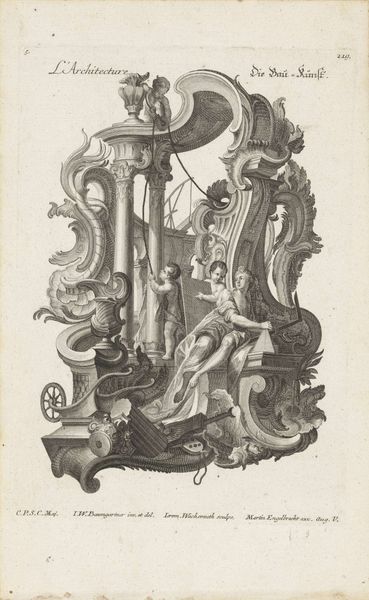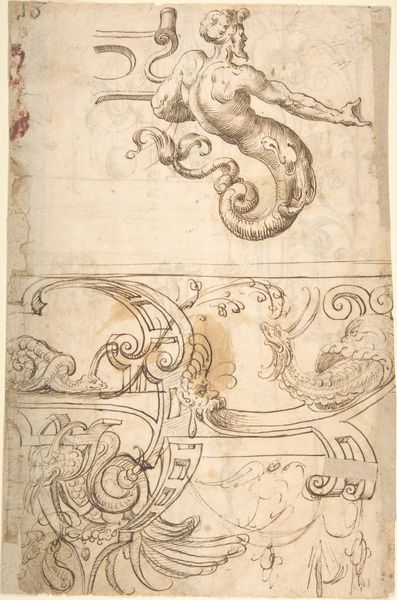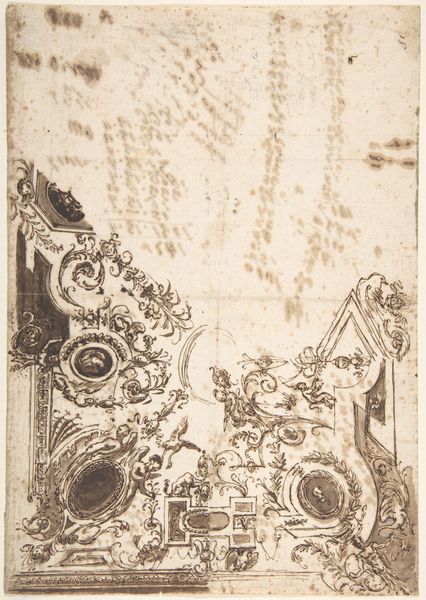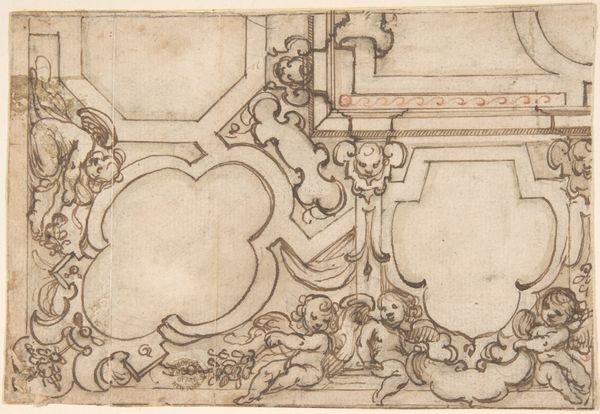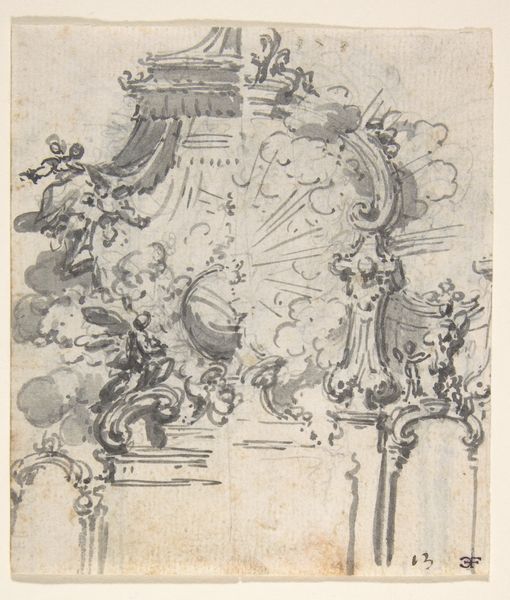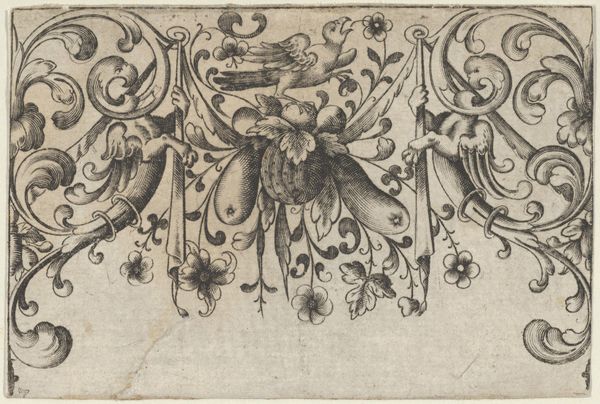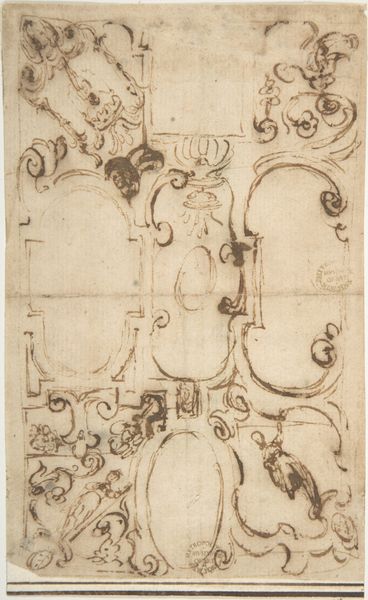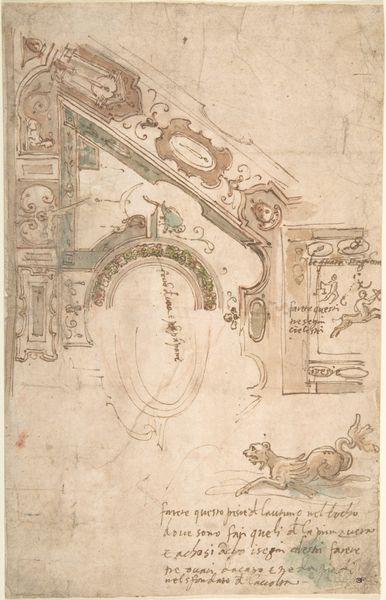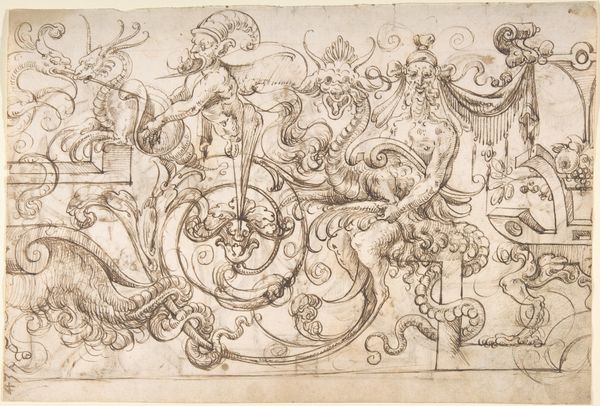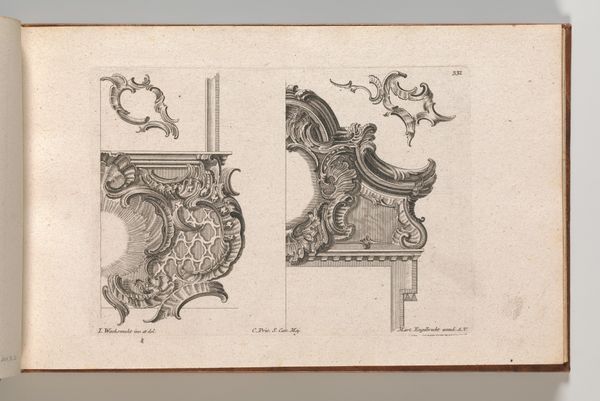
drawing, paper, ink
#
portrait
#
drawing
#
allegory
#
ink painting
#
mannerism
#
figuration
#
paper
#
ink
#
coloured pencil
#
watercolour illustration
#
italy
Dimensions: 5 11/16 x 6 5/8 in. (14.5 x 16.8 cm) (sheet)15 3/4 x 19 3/4 in. (40.0 x 50.2 cm) (outer frame)
Copyright: Public Domain
Jacopo Zucchi made this pen and brown ink drawing, "Putti with the Impresa of Pope Leo X," probably in Italy, sometime in the late 16th century. This study of putti, those chubby cherubs so popular in Renaissance art, also includes the personal emblem, or impresa, of Pope Leo X. Made a century after Leo's papacy, Zucchi's drawing reflects how powerful families like the Medici, from which Leo came, used art to construct their public image and cement their place in history. The impresa, prominently displayed, functioned as a visual brand, associating the Pope with virtues like strength and wisdom. The putti, playful yet idealized, further enhanced this image, linking Leo to notions of innocence and divine favor. Art historians often consult a range of sources to understand these works: family records, papal documents, and studies of Renaissance symbolism all help to unlock the complex layers of meaning embedded in what might initially seem like a simple sketch.
Comments
minneapolisinstituteofart about 2 years ago
⋮
Jacopo Zucchi trained in Florence under Giorgio Vasari and spent most of his career in Rome working for members of the Medici family in residence there. This study relates to decoration in the Villa Medici on the Pincian Hill in Rome, where Zucchi worked on several projects. This frecoed frieze, designed by Zucchi and executed by members of his shop in 1587, survives in the Villa's Chambre des imprese. It represents putti playing among garlands of fruit and elaborately sculpted volutes and cartouches with the personal emblems of illustrious members of the Medici family. This study features the impresa of the former Medici pope, Leo X (reigned 1513–1521)–a yoke with the motto "SVAVE"–which Zucchi inscribed on the banderole in the shield and placed below a papal crown supported by a small putto. "Suave" or "soave" means sweet, delicate, or easy, and alludes to the biblical passage "For my yoke is easy, and my burden is light" (Matthew II:30).
Join the conversation
Join millions of artists and users on Artera today and experience the ultimate creative platform.
